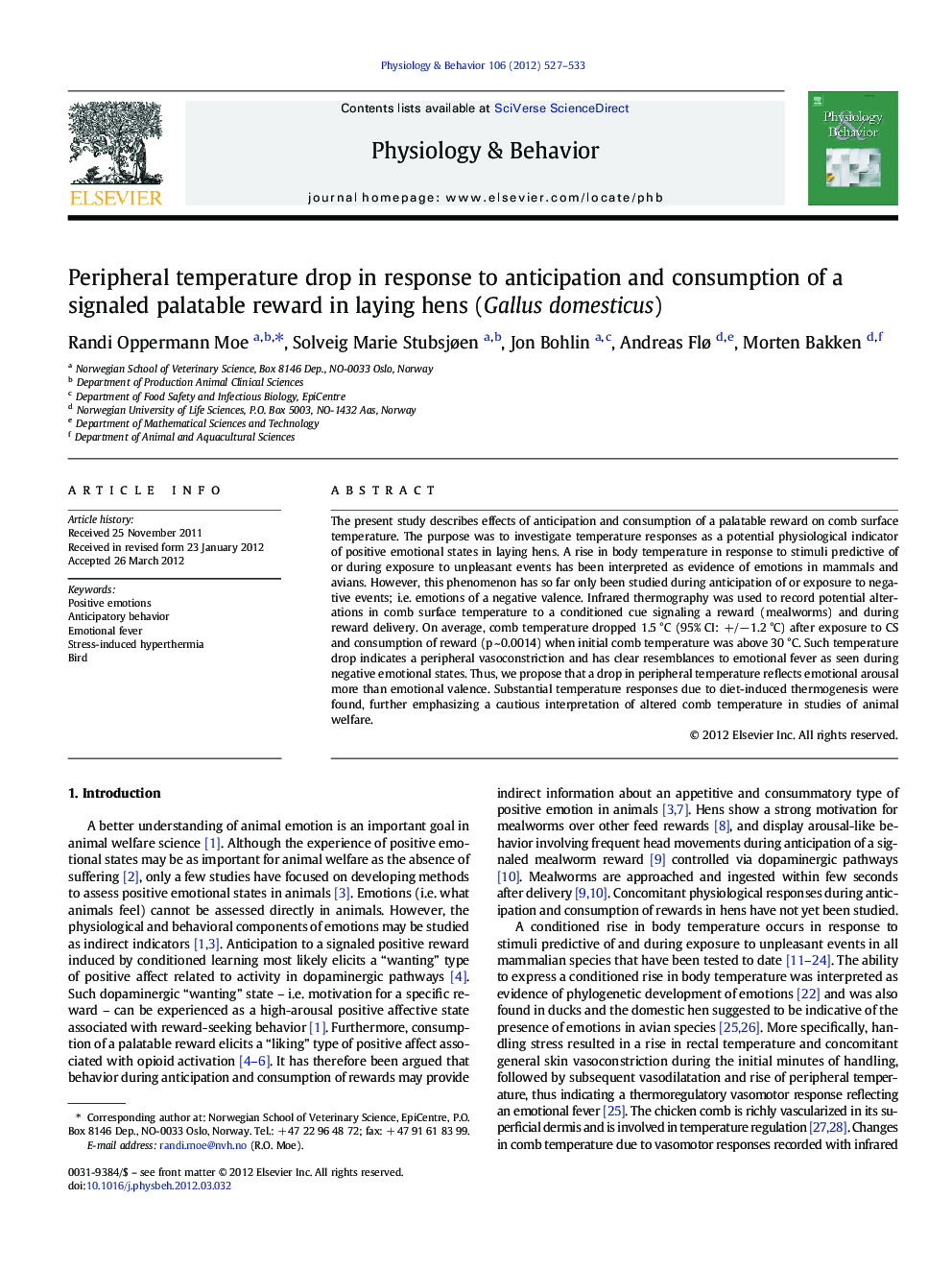| کد مقاله | کد نشریه | سال انتشار | مقاله انگلیسی | نسخه تمام متن |
|---|---|---|---|---|
| 5924992 | 1166337 | 2012 | 7 صفحه PDF | دانلود رایگان |

The present study describes effects of anticipation and consumption of a palatable reward on comb surface temperature. The purpose was to investigate temperature responses as a potential physiological indicator of positive emotional states in laying hens. A rise in body temperature in response to stimuli predictive of or during exposure to unpleasant events has been interpreted as evidence of emotions in mammals and avians. However, this phenomenon has so far only been studied during anticipation of or exposure to negative events; i.e. emotions of a negative valence. Infrared thermography was used to record potential alterations in comb surface temperature to a conditioned cue signaling a reward (mealworms) and during reward delivery. On average, comb temperature dropped 1.5 °C (95% CI: +/â 1.2 °C) after exposure to CS and consumption of reward (p ~ 0.0014) when initial comb temperature was above 30 °C. Such temperature drop indicates a peripheral vasoconstriction and has clear resemblances to emotional fever as seen during negative emotional states. Thus, we propose that a drop in peripheral temperature reflects emotional arousal more than emotional valence. Substantial temperature responses due to diet-induced thermogenesis were found, further emphasizing a cautious interpretation of altered comb temperature in studies of animal welfare.
⺠Anticipation and consumption of palatable rewards result in comb temperature drop. ⺠The temperature drop may indicate an emotional fever. ⺠Emotional fever may occur during positively valenced emotions. ⺠Emotional fever may reflect emotional arousal more than emotional valence.
Journal: Physiology & Behavior - Volume 106, Issue 4, 25 June 2012, Pages 527-533